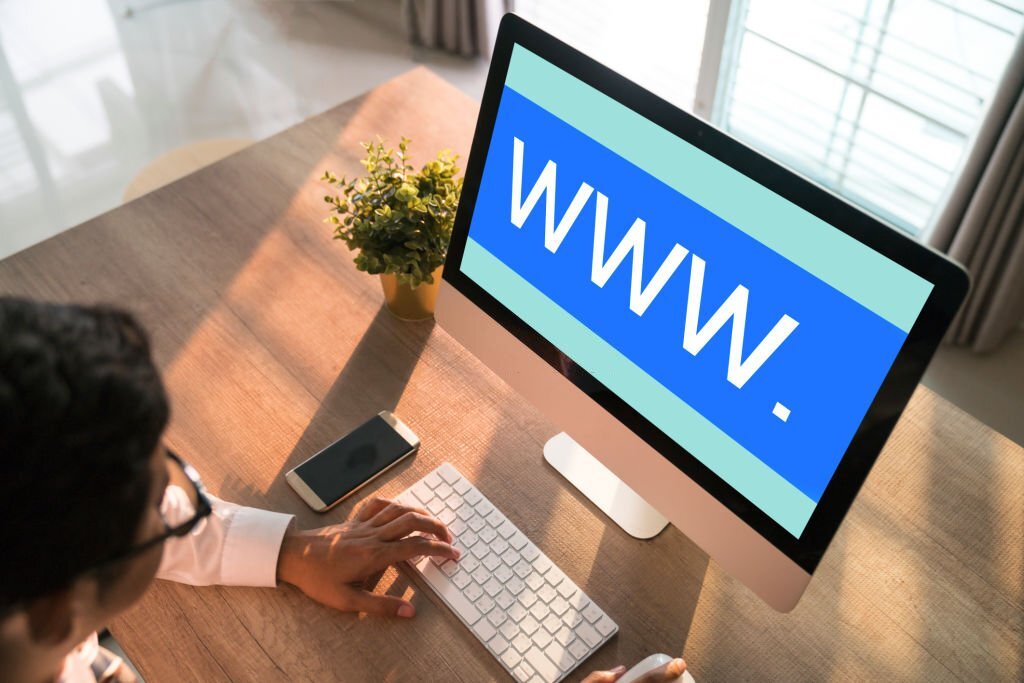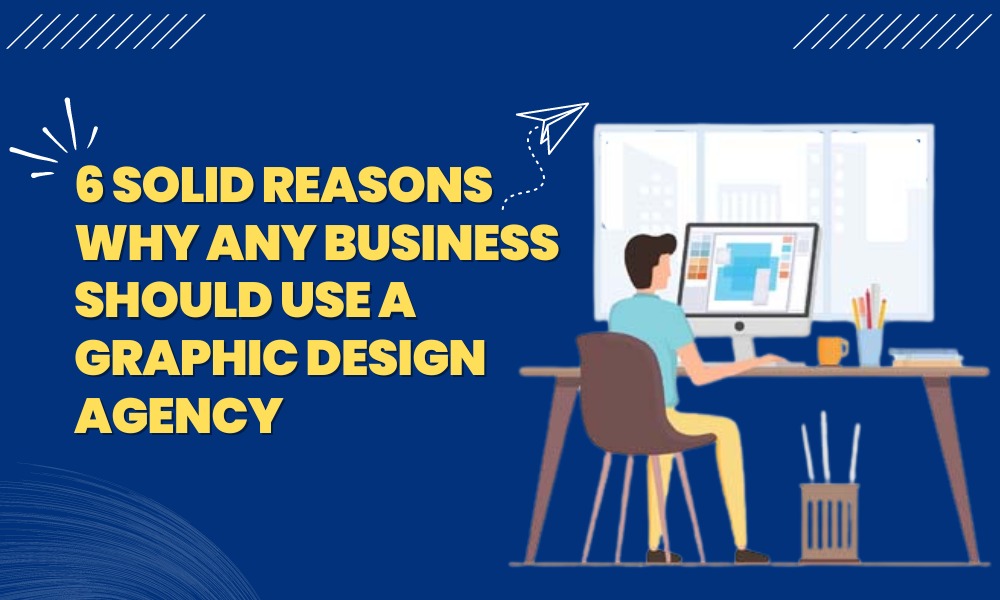A well-designed and functional website is essential for the success of any business. Whether you’re a small local business or a large corporation, your website serves as a virtual storefront, representing your brand and attracting potential customers. But with so many options available, how to choose a website designer? In this guide, we’ll walk you through the process of finding and hiring the best website designer.
Why Hiring a Professional Website Designer Matters?
Before we delve into the process, let’s discuss why it’s important to hire a professional website designer in the first place. While there are DIY website builders and templates available, they often lack the customization and functionality required to create a truly unique and effective website. A professional website designer has the skills, expertise, and experience to create a website that looks great and performs optimally. They understand the latest design trends, user experience principles, and search engine optimization techniques that can help your website stand out from the competition.
Key Considerations When Choosing a Website Designer
1. Expertise and Experience
When searching for a website designer, it’s crucial to consider their expertise and experience in the field. Look for designers who have a strong portfolio showcasing their previous work. This will give you an idea of their design style, creativity, and ability to create visually appealing websites. Additionally, consider their experience in designing websites for businesses similar to yours. A designer who understands your industry can better capture the essence of your brand and target the right audience.
2. Understanding of SEO
Search engine optimization (SEO) is essential in driving organic traffic to your website. It’s essential to choose a website designer who has a good understanding of SEO principles and practices. During the selection process, ask the designers about their approach to on-page optimization, keyword research, and website structure. An SEO-savvy designer can help optimize your website for search engines, improving its visibility and ranking.
3. Responsive Design
Having a responsive website is non-negotiable. Your website will respond to different screen sizes with a responsive design, ensuring an excellent user experience on desktops, tablets, and smartphones. Make sure the website designer you choose has experience in creating responsive websites. Ask to see examples of their previous responsive designs to ensure they can deliver a seamless user experience across all devices.
4. Client Testimonials and Reviews
A reputable website designer should have a track record of satisfied clients. Look for testimonials and reviews on their website or search for independent reviews online. Reading about other businesses’ experiences can give you insights into the designer’s professionalism, communication skills, and ability to meet deadlines. If possible, reach out to past clients directly to inquire about their experience working with the designer.
5. Clear Communication and Collaboration
Effective communication is crucial when working with a website designer. You want someone who listens to your ideas, understands your vision, and communicates clearly throughout the design process. During the initial consultations, pay attention to how well the designer understands your requirements and how effectively they communicate their ideas and suggestions. This will ensure a smooth and collaborative working relationship.
6. Cost and Value
While price shouldn’t be the only crucial factor, it’s important to consider your budget when choosing a website designer. Different designers may have different pricing structures, so be sure to ask for a detailed breakdown of costs. Keep in mind that investing in a professional website designer is an investment in your business’s online presence and success. Look for the value they offer in terms of expertise, experience, and the overall quality of their work.
Finding the Best Website Designer:
Now that you know what to look for, let’s explore some of the best practices to find the best website designer:

1. Online Research and Local Directories
Start your search by conducting online research. Look for web designers using search engines, and explore their websites to gather information about their web design services, portfolios, and contact details. Additionally, consider browsing local directories or business listings, as they often feature a curated list of professional website designers.
2. Referrals and Recommendations
Word-of-mouth recommendations can be invaluable when searching for a website designer. Reach out to fellow business owners, colleagues, or industry associations and ask for their trusted web designer recommendations. Personal experiences and client feedback can provide you with valuable insights into the quality of work and professionalism of different designers.
3. Attend Networking Events
Networking events and industry conferences are great opportunities to meet professionals in the web design industry. Engage in conversations, share your business requirements, and ask for recommendations or contacts from reliable web designers. These events can also help you stay updated on the latest web design trends and innovations.
4. Social Media and Online Communities
Utilize social media platforms such as Facebook, LinkedIn, or industry-specific forums to seek web designer recommendations or post inquiries about website designers for your Social Media Marketing. Engage with relevant web design communities, ask for suggestions, and gather insights from fellow business owners or professionals in your industry. Social media groups or forums focused on web design or entrepreneurship can be particularly helpful in finding reputable website designers.
5. Review Portfolios and Case Studies
Once you have a list of potential website designers, review their web design portfolios and case studies. Pay attention to the design aesthetics, user experience, and functionality of the websites they have created. Look for diversity in their portfolio to ensure they can adapt to different industries and design styles. If possible, visit the actual websites they have designed to experience the user journey firsthand.
6. Request Consultations and Quotes
Narrow down your choices to a select few designers and request web design consultations or quotes. This allows you to discuss your project requirements, ask specific questions, and assess their professionalism and expertise. A good website designer will take the time to understand your business goals, target audience, and brand identity, and provide you with a tailored solution.
7. Check References and Testimonials
Before making a final decision, ask the website designers for client references or testimonials from their previous clients. Contact these clients to inquire about their experience, satisfaction with the designer’s work, and the overall project process. Their feedback will provide you with valuable insights into the designer’s reliability, communication, and ability to meet deadlines.
8. Compare Costs and Contract Terms
Finally, compare the costs and contract terms provided by different website designers. While affordability is important, prioritize the value and quality of the services offered. Look for transparency in pricing, including any additional charges for revisions or ongoing support. Ensure that the contract clearly outlines the scope of work, project timeline, deliverables, and ownership rights.
(FAQs) – How to Choose a Website Designer?
What is the role of a website designer?
A website designer is responsible for creating visually appealing and functional websites. They use their design skills, knowledge of user experience principles, and coding expertise to develop websites that align with the client’s brand and objectives. They collaborate with clients to understand their requirements, create website layouts, choose colour schemes, select fonts, and optimize the website for search engines.
How do I know if a website designer is skilled and experienced?
To determine the skill and experience of a website designer, you can review their portfolio and case studies. Look for a diverse range of projects that showcase their design capabilities and ability to create effective websites. Additionally, consider their years of experience in the industry, their understanding of current design trends, and any certifications or accolades they may have received.
Can a website designer help with search engine optimization (SEO)?
Yes, many website designers have a good understanding of SEO principles and can incorporate them into the website design process. However, it’s important to clarify with the website designer if they offer SEO services or collaborate with SEO professionals to ensure your website is properly optimized for search engines.
How important is responsive design for my website?
Responsive design is extremely important for websites in today’s mobile-centric world. With the increasing use of smartphones and tablets, it’s crucial that your website adapts and displays properly across different devices and screen sizes. A website designer with experience in responsive design ensures that your website provides a seamless and user-friendly experience on all devices, which can positively impact your search engine rankings and user engagement.
How long does it take to create a website?
The timeline for creating a website varies depending on several factors, such as the complexity of the project, the size of the website, and the availability of content and resources. Simple websites with basic features can be completed in a matter of weeks, while larger and more complex websites may take several months. It’s important to discuss the timeline with your website designer during the consultation phase to set realistic expectations and ensure smooth project delivery.
What should I expect in terms of ongoing support and maintenance?
It’s important to clarify with your website designer what level of ongoing support and maintenance they provide. Some designers offer post-launch support, which includes assistance with minor updates, bug fixes, and technical issues. Others may offer website maintenance packages that include regular updates, security checks, and backups. Understand what level of support is included and if there are any additional costs associated with ongoing maintenance.
How much does it cost to hire a website designer?
The cost of hiring a website designer varies depending on factors such as the complexity of the project, the designer’s experience, the number of pages, and the desired functionality. Basic websites can range from a few hundred to a few thousand dollars, while more complex and custom-designed websites can cost several thousand dollars or more. It’s important to discuss the cost and payment terms with the website designer during the consultation phase to ensure it aligns with your budget.
Conclusion
Choosing a website designer requires careful consideration and research. By focusing on their expertise, experience, understanding of SEO, responsive design capabilities, client testimonials, communication skills, and cost-effectiveness, you can find a professional website designer who aligns with your business goals. Remember that investing in a skilled website designer will contribute to the success and online visibility of your business. Take your time, do your due diligence, and choose wisely to ensure your website becomes an effective online asset for your business.
“Improve your online potential and make your brand’s digital dreams a reality – with our top-notch website designers.”






